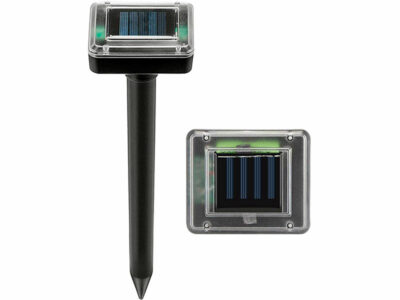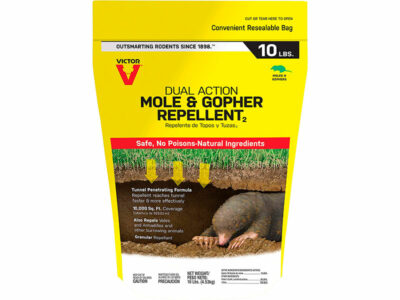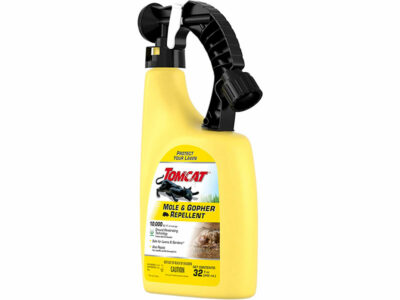Moles can wreak havoc on your carefully maintained lawn and garden, creating unsightly tunnels and destroying plant roots. While they’re primarily hunting for earthworms rather than your plants, the damage they cause can be extensive. This comprehensive guide explores the best mole repellents available today, from ultrasonic devices to castor oil-based solutions, helping you reclaim your yard without harmful trapping or killing methods.
Quick Picks: Best Mole Repellents

Editor’s Choice

Best Granular

Best Spray
- Understanding Mole Problems: Why You Need a Repellent
- Top 3 Best Mole Repellent Products Reviewed
- What is the Best Mole Repellent in 2025? – Your Expert Buyer’s Guide
- How to Apply Mole Repellents Effectively
- Common Mole Repellent Questions
- Conclusion: Choosing the Right Mole Repellent for Your Needs
Understanding Mole Problems: Why You Need a Repellent
Moles can cause significant damage to lawns and gardens, creating unsightly tunnels and mounds as they search for their primary food source: earthworms. While they’re not interested in eating your plants, their tunneling can disturb root systems and create tripping hazards. Additionally, moles can carry diseases that might affect humans and pets, making it important to address an infestation promptly.

The good news is that you don’t need to resort to lethal methods. Effective mole repellents can drive these creatures away from your property without harming them, providing a humane solution to your mole problem. There are various natural and commercial repellents available that can disrupt their environment and encourage them to relocate. Additionally, if you’re interested in learning how to effectively trap moles, a combination of strategic placement and the right type of traps can yield positive results. By utilizing these humane approaches, you can maintain a healthy living space while respecting the wildlife around you.
Top 3 Best Mole Repellent Products Reviewed
After extensive testing and research, these three mole repellents stand out as the most effective options on the market today.
Solar-Powered Repellent Spikes - Best Ultrasonic Mole Repellent
Editor's ChoiceHow Does It Work
How to Use
- Position spikes in areas with active mole tunneling, pushing them firmly into the ground
- Allow the solar panel to charge for 4 hours in direct sunlight before operation begins
- For optimal coverage, install two devices approximately every 100 feet
- Keep the solar panel clean to ensure proper charging
- If new mole holes appear, patch them daily while the repellent takes effect
- Environmentally friendly with no chemicals or toxins
- Safe for children and pets
- Covers an impressive radius of up to 45 feet in all directions
- Requires no external power source or batteries
- Weather-resistant and durable for long-term use
- Requires full sunlight to charge for 4 hours before operation
- May be less effective in heavily shaded areas
- Takes time to see full results as moles gradually relocate
Victor Mole & Gopher Repellent Granules
Best GranularHow Does It Work
How to Use
- Identify areas with the most mole activity and determine which direction to herd them out of your yard
- Apply granules evenly across the affected areas using a broadcast spreader
- Water thoroughly after application to help the concentrated formula penetrate deeply into the soil
- For ongoing protection, reapply after heavy rainfall or every 30 days
- Store unused product in the resealable packaging between applications
- Non-toxic formula safe for pets when used as directed
- Resealable packaging for convenient storage
- Dual-action repellence by both scent and taste
- Covers up to 10,000 square feet
- Economical solution for large areas
- Amount needed varies based on yard size and soil type
- Requires thorough watering to activate
- May need more frequent application in rainy conditions
- Takes time to fully penetrate soil for maximum effectiveness
Tomcat Mole & Gopher Repellent Spray
Best SprayHow Does It Work
How to Use
- Attach the sprayer to your garden hose with the spray nozzle in the 'ON' position
- Turn water pressure to full and allow the product to mix with the water stream
- Apply evenly across affected areas, using approximately 1 quart per 10,000 square feet
- Continue watering for 5 minutes after application to help the product soak into the soil
- Reapply after heavy rainfall or every 30-60 days for continuous protection
- Ready-to-use formula with no mixing required
- Easy application through garden hose attachment
- Covers large areas up to 10,000 square feet
- Safe for lawns and gardens when used as directed
- High concentration (99%) of castor oil for maximum effectiveness
- Cannot be used on lawns in direct sunlight for more than 2 hours
- Requires reapplication after rainfall
- Needs water pressure to apply properly
- May take several applications to completely deter established mole populations
What is the Best Mole Repellent in 2025? – Your Expert Buyer’s Guide
When choosing the best mole repellent for your situation, consider several factors including the size of your yard, the severity of your mole problem, and your preferences regarding natural versus chemical solutions. Let’s explore the different types of repellents available:
Ultrasonic Repellents
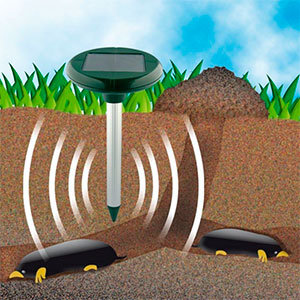
Ultrasonic repellents like our top-rated Solar-Powered Repellent Spikes use technology to drive moles away. These devices emit sonic pulses at frequencies between 400Hz and 1,000Hz that penetrate the soil. While these frequencies are unpleasant for moles, they don’t cause harm – they simply encourage moles to relocate to more comfortable territory.
Most ultrasonic devices cover 500-700 square feet, but you can use multiple units to protect larger areas. They’re particularly effective when combined with other repellent methods for a multi-layered approach.
Ultrasonic repellents are one of the safest options if you have pets. Dogs and cats won’t be bothered by the ultrasonic frequencies, and there are no chemicals or poisons that could harm them.
Castor Oil-Based Repellents
Castor oil is the most common active ingredient in commercial mole repellents, and for good reason – moles strongly dislike its smell and taste. Available in granular and liquid forms, these repellents penetrate the soil and drive moles away without harming them.
Research from the University of Nebraska-Lincoln confirms that castor oil products have shown “minor effectiveness” in repelling eastern moles, with one study showing reduced mole activity for over 30 days. For maximum effectiveness, proper application is crucial – the area must be thoroughly watered before and after treatment.
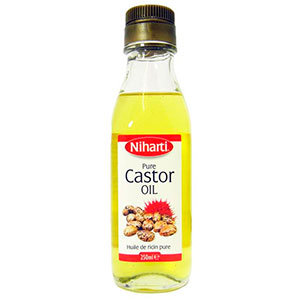
Products like Victor Mole & Gopher Granules and Tomcat Mole & Gopher Repellent Spray use castor oil as their main ingredient. When properly applied and watered in, they create an inhospitable environment that encourages moles to relocate.
DIY Castor Oil Repellent Recipe
You can create your own castor oil repellent with simple household ingredients:
- Mix ½ cup castor oil with ½ cup liquid dish soap
- Combine 3 tablespoons of this mixture with 1 gallon of warm water
- Apply to mole-affected areas, focusing on entry holes and tunnels

For enhanced effectiveness, try this spicy repellent recipe that combines castor oil with ingredients moles find particularly unpleasant:
- Combine 1 teaspoon of castor oil with 1 gallon of warm water
- Add 1 teaspoon each of chili powder and garlic powder
- Shake vigorously to combine
- Pour directly into mole holes and across affected areas
Plants That Naturally Repel Moles
Strategic planting can help deter moles naturally. These plants produce scents or substances that moles find unpleasant:
Castor Bean Plant
Contains the same compounds found in commercial castor oil repellents. Note: The seeds are toxic, so use caution around children and pets.
Daffodils and Marigolds
These colorful flowers add beauty to your garden while naturally deterring moles with their strong scent.
Alliums
Plants in the onion family, including ornamental alliums, emit a smell that repels moles while attracting beneficial pollinators.
While castor beans can be effective for mole control, they can be toxic if ingested by children or pets. If you use castor beans in your garden, ensure they’re placed where children and animals cannot access them.
How to Apply Mole Repellents Effectively
For maximum effectiveness, follow these strategies when applying mole repellents:
For Granular Repellents
- Identify active tunnels by looking for raised ridges or fresh mounds of soil
- Spread granules evenly across affected areas using a broadcast spreader
- Sprinkle additional granules directly into mole hole entrances (about ½ cup per hole)
- Water thoroughly for 15-20 minutes to help the repellent penetrate the soil
- Repeat in different areas of your yard, especially focusing on the perimeter to prevent re-entry
For Spray Repellents
- Shake the container well before attaching to your garden hose
- Ensure a tight connection to prevent leaking
- Turn water on at full pressure to achieve the correct dilution ratio
- Spray thoroughly over tunnels, holes, and surrounding areas
- Continue watering for about five minutes after application to help the solution penetrate
For Ultrasonic Repellents
- Place devices near active tunnels and mole activity
- Ensure solar panels have direct sunlight access for proper charging
- Space multiple devices according to manufacturer recommendations (typically every 100 feet)
- Keep solar panels clean for optimal performance
- Continue to fill in new mole holes that appear during the transition period
For the most effective mole control, use a combination of methods. For example, apply castor oil granules or spray to drive moles away, then install ultrasonic devices to prevent their return. Supplement with strategic plantings for long-term deterrence.
Common Mole Repellent Questions
Does castor oil really repel moles?
Yes, castor oil is an effective natural mole repellent. Moles find both the smell and taste of castor oil highly unpleasant. When applied correctly and penetrated into the soil, castor oil creates an environment that moles prefer to avoid.
For optimal results, use castor oil products consistently and combine them with other repellent methods like ultrasonic devices for a multi-layered approach.
What is the best time to apply mole repellent?
The best time to apply mole repellent is when the soil is moist, either after rainfall or after watering your lawn. Moist soil helps the repellent penetrate deeper to reach mole tunnels.
Early spring and fall are particularly effective seasons for application, as these are times when moles are most active and establishing new territories.
What do moles hate the most?
Moles particularly hate strong odors, vibrations in their tunnels, and bright light. They’re repelled by the smell of castor oil, garlic, and certain plants like daffodils and marigolds.
Additionally, moles dislike the vibrations created by ultrasonic devices and the disturbance of their tunnel systems. Their sensitive nature makes them relatively easy to repel with the right combination of deterrents.
How long does it take for mole repellent to work?
Most mole repellents begin working within 24-72 hours, but complete results may take 1-2 weeks as moles relocate. Established mole populations might require repeated applications for complete removal.
Be patient and consistent with your application schedule, and continue to fill in any new holes that appear during the transition period.
Are mole repellents safe for pets and children?
Most commercial mole repellents containing castor oil are generally safe for use around pets and children when applied according to package directions. Ultrasonic repellents are completely safe as they use only sound waves.
Always read and follow manufacturer instructions, keep pets and children away from treated areas until dry, and store products securely out of reach.
Conclusion: Choosing the Right Mole Repellent for Your Needs
As Michigan State University advises, “it is always wise to start with the least risky control methods for any pest, and then gradually ‘escalate the battle’ as necessary”. This multi-layered approach combining different repellent methods often yields the best results.
For most homeowners, this multi-layered approach yields the best results:
- For immediate action against an active infestation, start with a castor oil-based product like Victor Mole & Gopher Granules or Tomcat Mole & Gopher Repellent Spray
- Once moles begin to leave, install Solar-Powered Ultrasonic Repellent Spikes to prevent their return
- For long-term prevention, consider planting mole-repelling plants like daffodils, marigolds, and alliums along property borders
Remember that consistency is key. Monitor your property regularly for signs of mole activity and reapply repellents as needed, especially after heavy rainfall. With patience and persistence, you can effectively manage mole problems without resorting to harmful trapping or poisoning methods. Additionally, consider implementing some DIY mole removal techniques, such as creating natural barriers or using specific plants that deter moles from entering your garden. These methods not only help protect your property but also contribute to a healthier ecosystem by minimizing chemical use. By combining vigilant monitoring with these innovative approaches, you can maintain a mole-free environment while supporting local wildlife.
By choosing humane repellent options, you’re not only protecting your lawn and garden but also respecting wildlife by encouraging moles to relocate rather than eliminating them. This ethical approach to pest management achieves lasting results while maintaining ecological balance.
